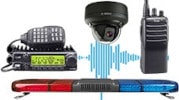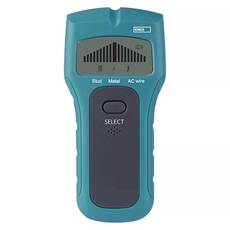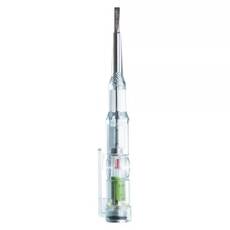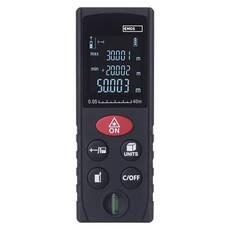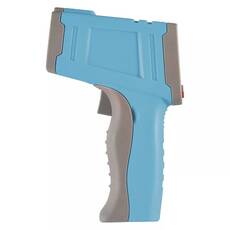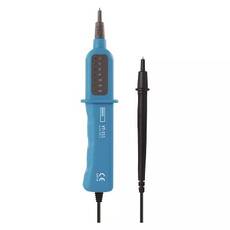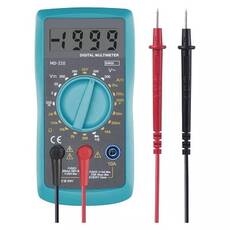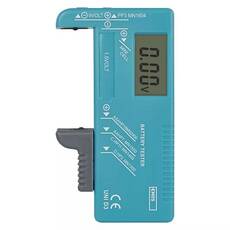- Special Offers
- Transceiver Radio
- Transceiver Accessory
- Antennas
- Antenna Accessory
- Cable
- Connector
- Installation Material
- Installation Tools
- Measuring Equipement
- Multidetector
- Voltage Tester
- Distance Meter
- Thermometer
- Voltmeter
- Multimeters
- Battery Tester
- Body Worn Camera
- Electrosmog
- Telephone
- Baby Monitor
- Fever Thermometer
- Radio Device
- Set-top Boxes
- Personal Protective Equipment
- Motorcycle Helmet Speaker
- Car Equipment
- Voltage Converter
- Dry Cell
- Battery
- Battery Charger
- Emergency Signal
- Amber Signal
- Sound Signal
- Light and Sound Signal Accessory
- Traffic Engineering
- LED Lamp
- Smart Home
- Mosquito Repellent Device
- Market - Other Products
- Discontinued Products
Measuring Equipement
- further categoriesIn our homes, in industry and in commerce, we use measuring instruments that measure different physical quantities. This includes parameters such as electric current, voltage, resistance or frequency. But we also measure force, pressure or, for example, the temperature of the environment. In addition, the right measuring instruments can also detect electromagnetic fields very accurately.
To make these measurements or display values and data, you can choose from a variety of measuring instruments. For example, a multidetector, a phase detector, a rangefinder, a thermometer, a voltmeter, a multimeter or even a battery tester. Within this, a distinction is made between portable and fixed measuring instruments. For example, hand-held or desktop meters.
Hand-held instruments are ideal for home use or for industrial use on customer premises. Stationary meters, which can even be connected to a computer, for example, are more common in offices or workshops, or are developed by manufacturers for longer-term use.
How do meters work?
Measuring instruments use mechanical, optical or electronic sensors to measure the value to be tested. Measuring instruments are used for different types of measurements in many areas of everyday life. In order to use the most appropriate instrument for each situation, it is useful to know their characteristics so that you know which one works best in a given situation. Because each device measures different things, they also work in very different ways.
But we can distinguish between test meters, or detectors or scanners that are used to check certain things, or multimeters, for example, which display values that require expert examination. Monitoring and testing devices sometimes emit optical or acoustic signals when certain measurement ranges are reached or exceeded, such as digital thermometers.
Types and characteristics of measuring instruments
Let's look at which measuring instruments have which characteristics.
- A multidetector, also known as a wall scanner, as the name suggests, is a device that allows you to easily locate electrical wires, pipes, plumbing, metal, framing behind drywall or even sewage lines hiding in the ground that are hidden from the naked eye.
- Thermometers are a practical aid in many areas of life. Their use is very diverse. Infrared thermometers are used on construction sites, in many areas of industry and commerce, but are also widely used in the home. Whether it is for thermal insulation of buildings or detection of heating systems, digital thermometers are a useful tool in our everyday life.
- Accurate measurement in any area of life is now child's play thanks to rangefinders. These devices have a range of 20-60 metres. Some digital rangefinders can even be controlled via Bluetooth, so you can manage your measurements directly on your computer, laptop or tablet.
- The phase detector, or as many people know it, the phase detector, shows the presence or absence of DC or AC voltage without having to directly contact the wire. With certain phase detectors, you can not only check for the absence of voltage in the wires, but also determine the exact measured value of the AC or DC voltage.
- A multimeter is used to measure electrical values. It measures resistance, frequency, DC and AC voltage and displays the result in volts, ohms, amperes, hertz or farad. The modern multimeter also has additional functions and can measure, for example, the capacitance of capacitors, or additionally test the operation of diodes or the inductance of a battery charge.
- A battery tester is a compact device that measures the voltage and state of charge of a miniature power cell, giving you useful clarity on whether the many batteries in your household are still usable or not.
- A voltmeter is an electrical testing device that can be used to determine the lack of voltage in a circuit. Some voltmeters can be used not only to check whether there is no voltage in the circuit, but also to determine accurate readings for AC or DC voltage. This device is also used by radio amateurs.
What should you consider when buying a measuring instrument?
Which meter is the most suitable for a given situation depends on a number of factors. You can choose analogue or digital. But, as mentioned above, it is also important to consider whether to choose a handheld or a stationary meter. This is always decided by the operating environment. If we need to take measurements where it is not possible to connect to the mains, then handheld instruments are the right choice.
Stationary instruments may be more suitable for workshop environments or long-term use, especially as they often offer a wider range of functions. But we should also bear in mind that meters are only effective if they are used properly. This means that the measuring range of the instruments must be within the range within which the instrument can measure properly. In addition, we should also ensure that the values are accurate and that the target values are relevant to us.
Nowadays, when purchasing this type of equipment, we also need to take into account whether additional accessories, such as USB ports or perhaps memory cards, are needed to use it or to evaluate or transmit data.
Different measuring instruments for different uses are available from stock. Have a look at our online shop.

